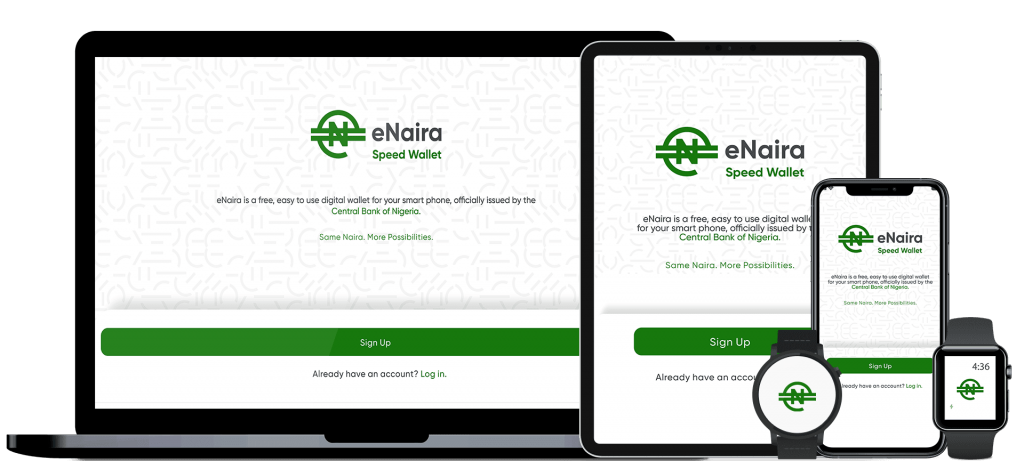
Four months after its release, the eNaira wallet is still dogged with bad reviews and user complaints about its functionality.
The Central Bank of Nigeria (CBN), in a bid to advance payments boundaries systems and make financial transactions easy, launched the eNaira. The eNaira is Nigeria’s own Central Bank Digital Currency (CBDC) which is expected to provide financial inclusivity for every citizen of the country. The eNaira speed wallet is the wallet that hosts this digital currency.
According to the eNaira website, the speed wallet is designed to facilitate the use of the CBDC while responding to its user’s needs. However, four months after its launch and over 100,000 downloads, users are still dissatisfied.
Appstore Reviews Tell A Bad Story
The app’s review section on the google play store paints a complete picture of users dissatisfaction. On the 1-5 star rating, the app has a rating of 2.8, signifying mixed reviews so far. The bulk of the over 6000 reviews rated it one out of five. Though some of the feedback revealed some level of satisfaction with the app, most of the comments were negative.
Meanwhile, several reviewers complained about the inability to register and log in to the app. Others complained about the difficulty in transferring funds from their bank accounts to their wallet. A user by the name Adesegun Olamilekan Odusanya left this review,
I registered the following day it was launched, and it was successful. I tried to log in, and it said invalid user name and password. After which I clicked on login help to reset my password. They said it had been sent to my registered email. I have not seen anything since that day till now. I have requested for the reset and even an email to the support, yet no response. When I try to register, I get a response “too many requests on my BVN” Please do something to help me out. Thank you
The CBN seems to be on top of the situation, with the support team available to assist with users’ complaints. Many tech experts opine that apps like this tend to have bugs that are fixed when updates roll out.
Many Nigerians would hope the CBN updates the app quickly, even as they look forward to its continued adoption. One Dapo Fashina expressed his enthusiasm and belief that the app would soon supplant POS (point of sale) machines popular in Nigeria. He said,
I don’t understand why people are just hating. This app is perfectly okay as far as I am concerned. I have loaded funds directly from my GTBank app, and I’m waiting for when merchants will adopt it, especially filling stations and malls. I am sure it will replace or supplement POS in most enterprises. CBN needs to promote the merchants’ version to enable the proper use of this app.
IMF Endorses CBDCs, Discourages Bitcoin
On the other hand, the IMF has started to intensify efforts to dissuade countries including Nigeria from turning to cryptocurrencies. Instead, the monetary policymaker has urged governments to use CBDCs, which it says are a better bet. This is already looking like a possibility as developing countries may suffer due to tightening economic conditions that a possible interest rate hike may cause.
According to IMF managing director Kristalina Georgieva, CBDCs are gaining traction, with several moving from mere theories to practical uses. She highlighted that global central banks are committed to minimising the detrimental effects of CBDCs on financial intermediation and credit provision.
While several countries continue to explore the practicality of CBDCs, others like El Salvador have adopted Bitcoin as a legal tender. However, the IMF has warned the Central American country of the risks associated with its use of crypto on its economic stability and integrity.
Despite both being digital assets, CBDCs and Bitcoin are different. There is a stark difference in the way they’re issued and controlled. The first main difference between them is that cryptocurrencies are built on a distributed ledger technology (DLT), while CBDC’s are not — at least in many cases. Secondly, just like fiat, CBDC’s are controlled and regulated by the banks, while most cryptocurrencies have a more decentralised approach. Finally, crypto offers some anonymity and privacy, which is totally absent with the use of CBDC.
A recent poll by the IMF saw users prioritise privacy as the most important feature for any CBDC. But how this can be achieved is still yet to be seen.
With the current development, it is clear that the IMF has become more resolute to block the domino effect from El Salvadors Bitcoin adoption. However, time will uncover many grey areas as developing countries may begin to clamour for mass adoption.
Do you think CBDCs offer better economic and financial inclusivity compared with cryptocurrencies? Let us know your thoughts in the comments below.

Chris is a crypto enthusiast and a firm believer in the blockchain’s ability to create a new financial paradigm. Through writing, Chris hopes to expose the intricacies of this disruptive technology and how it is beneficial to Africans and developing countries. He aims to give readers a rational and unbiased outlook of the industry by equipping them with the necessary information to make enlightened investment decisions.


